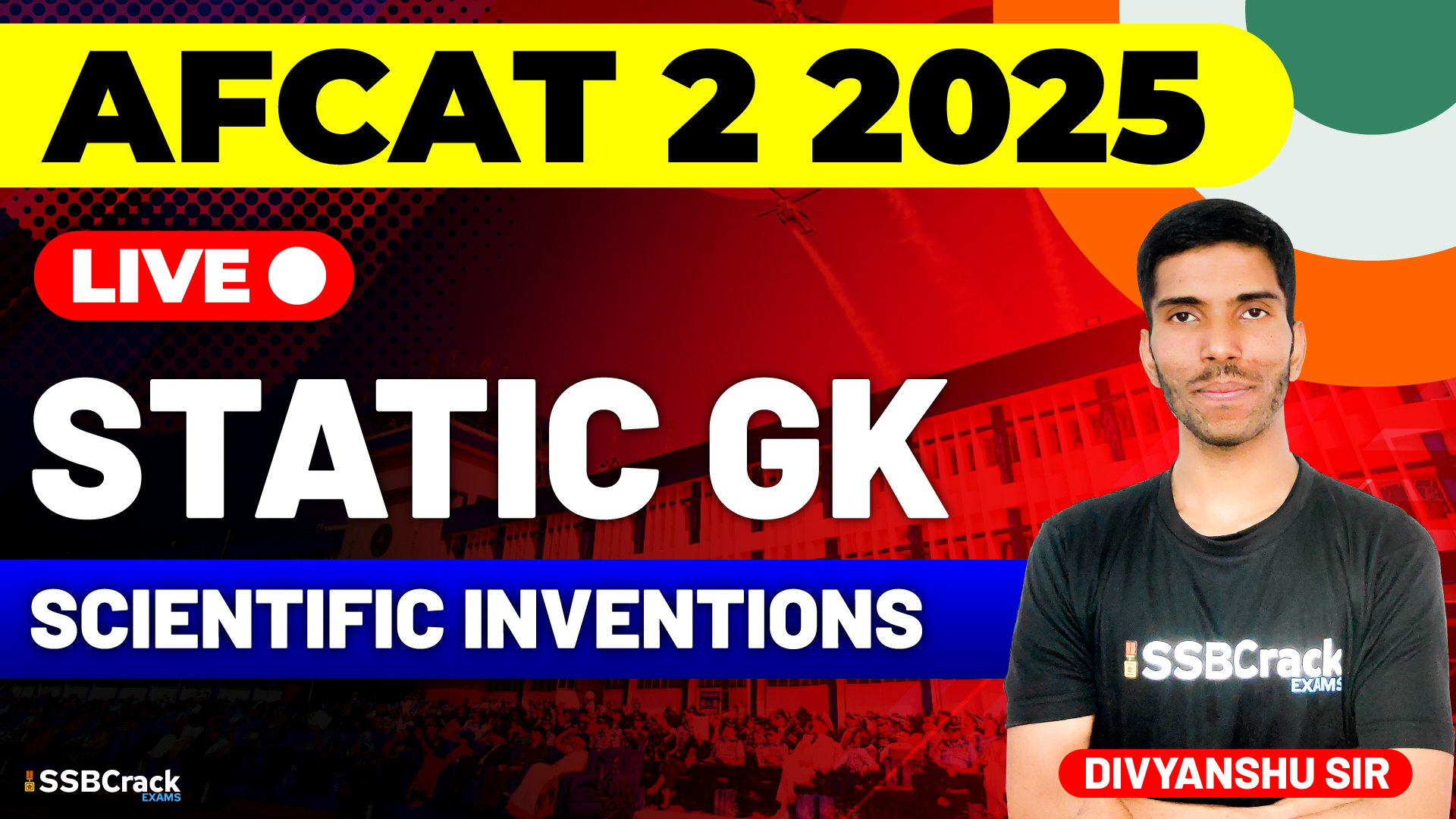The AFCAT 2 2025 exam includes a vital section on Static General Knowledge, and one of the most frequently asked topics in this area is Scientific Inventions and their Inventors. This topic not only highlights historical advancements in science and technology but also underlines the contributions of both global pioneers and Indian scientists.
AFCAT 2 2025 Exam Static GK – Scientific Inventions
🌍 Major Scientific Inventions & Inventors (Global)
| Invention | Inventor | Year | Significance |
|---|---|---|---|
| Wheel | Unknown | ~3500 BC | Foundation of transport and machinery |
| Printing Press | Johannes Gutenberg | c. 1440 | Mass communication revolution |
| Steam Engine | James Watt | 1769 | Industrial Revolution catalyst |
| Telephone | Alexander Graham Bell | 1876 | Transformed global communication |
| Light Bulb | Thomas Edison | 1879 | Electric lighting for homes and streets |
| Airplane | Wright Brothers | 1903 | Beginning of modern aviation |
| X-Ray | Wilhelm Röntgen | 1895 | Medical imaging breakthrough |
| Radio | Guglielmo Marconi | 1895 | Enabled wireless communication |
| Penicillin | Alexander Fleming | 1928 | First true antibiotic |
| Television | John Logie Baird | 1927 | Transformed entertainment |
| Computer (Concept) | Charles Babbage | 1837 | Father of the modern computer |
| World Wide Web | Tim Berners-Lee | 1989 | Internet revolution |
| DNA Double Helix | Watson & Crick | 1953 | Foundation of modern genetics |
| Nuclear Reactor | Enrico Fermi | 1942 | Beginning of nuclear energy age |
| Telescope | Galileo Galilei | 1609 | Space observation milestone |
| Microscope | Zacharias Janssen | c. 1590 | Discovery of microorganisms |
🇮🇳 Contributions of Indian Scientists
India has made significant strides in science and technology through the contributions of its brilliant minds. Here are some notable Indian inventors and their achievements:
| Scientist | Contribution/Discovery |
|---|---|
| C.V. Raman | Raman Effect – scattering of light |
| J.C. Bose | Wireless radio signals; plant physiology |
| Homi Bhabha | Father of Indian nuclear program |
| Srinivasa Ramanujan | Number theory and infinite series |
| Satyendra Nath Bose | Bose-Einstein statistics |
| A.P.J. Abdul Kalam | Missile technology, aerospace innovations |
| Vikram Sarabhai | Founder of the Indian Space Program (ISRO) |
🔬 Recent Innovations to Remember
For the AFCAT 2 2025 exam, you should also be aware of recent scientific developments:
- 2024: ISRO tested the world’s first air-breathing rocket system based on Solid Fuel Ducted Ramjet (SFDR) technology, enhancing India’s missile capabilities.
- 2023: India made advancements in quantum communication and semiconductor fabrication.
- 2022: Launch of multiple indigenous satellites for earth observation and disaster monitoring.
📝 Preparation Tips
- Make Flashcards – Invention, Inventor & Year.
- Revise Weekly – Especially Indian scientists.
- Practice MCQs – Based on previous AFCAT papers.
- Watch Videos/Webinars – Like “Static GK Live – Scientific Inventions” on YouTube.
- Group Learning – Discuss key inventions with peers.
📌 Conclusion
Understanding Scientific Inventions is crucial not only from a Static GK perspective but also to appreciate how science has shaped our lives. For the AFCAT 2 2025 Exam, a good command over this topic can help you secure valuable marks. Stay updated, practice regularly, and revise smartly!








